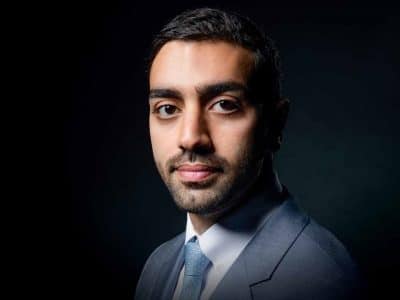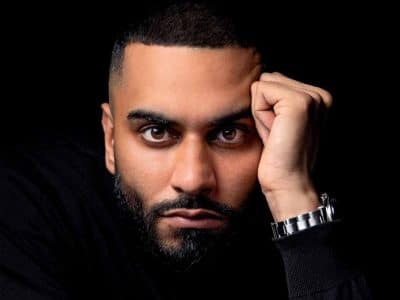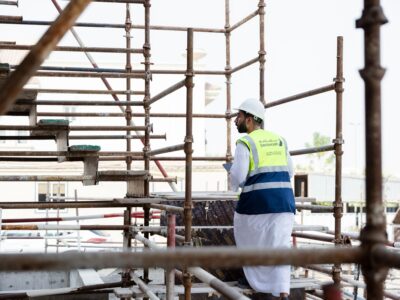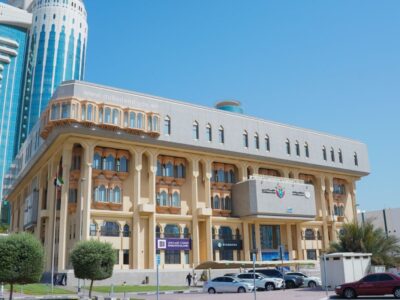It will be a busy summer for Dubai private equity firm Zabeel Investments, as it lines up a series of high-profile acquisitions across the United States. Andrew White listens as executive chairman Mohammed Ali Al Hashimi outlines his ambitious plans for 2008.
At a time when most of the world’s investment houses are looking to the Gulf or China for inspiration, Mohammed Ali Al Hashimi, executive chairman of Zabeel Investments, has his eyes trained firmly on the US.
More specifically, he has set his sights on a string of acquisitions across the US, with boutique hotels in New York, Los Angeles and Miami on the radar.
“I am getting myself into a position so that when I am ready, all I need to do is flick the switch,” he smiles, settling into a comfortable chair in his office at the Dubai International Financial Centre.
I’m putting everything together, and people are working around the clock to get things ready. It’s not a matter of ‘if’; it’s a matter of ‘when’.
According to Al Hashimi, the US$1bn spending spree is timed to take advantage of the current uncertainty surrounding the US economy’s short to medium-term prospects. “I am very optimistic about the US [economy] – whatever is happening now, it is temporary,” he says.
The US will bounce back, and I’m looking on this as a small window of opportunity.
It’s kind of open now, and I think it might open a little more, but for certain it will only be open for a short period of time.
In February, Zabeel took a strategic step into the hospitality sector, through the acquisition of a 50% stake in US hospitality development and management company, The Light Group.
The deal marked Zabeel’s first foray into the US market, and The Light Group will manage and operate The Harmon Hotel in Las Vegas, a joint venture between MGM Mirage and Dubai World.
“The Light Group deal was a very interesting one, and it shows how we from Dubai operate in the world – we operate quite entrepreneurially, and bureaucracy doesn’t take a hold,” insists Al Hashimi.
It has become politicised, with people comparing the Arabs to the Japanese in the 1980s when they came in and started buying everything up, but it’s about business at the end of the day.
The Light Group today has about 850 employees, but by the end of next year we should have over 2500.
The potential for expansion is what first attracted Zabeel to The Light Group, says Al Hashimi. That, and the bright lights of another famous desert city: Las Vegas.
“When people say ‘Las Vegas’, they automatically think ‘gambling’, but there is so much more than that,” he insists. “It’s about hospitality, and Las Vegas knows hospitality: the restaurants, the shows, and the best hotels in the world.
It is a model that Dubai could learn from, he argues. If Las Vegas is the entertainment capital of the world, then Al Hashimi sees no reason why Dubai can’t be the entertainment capital of the Middle East at least. In fact, Zabeel will test that theory when it unveils plans for two ‘Light Hotels’, in Dubai and Abu Dhabi, later this year.
“While Dubai has done exceptionally well in terms of real estate development and hotels, there’s still a lot of opportunity particularly on what I would call the entertainment side – restaurants and food and beverage,” he says.
When you go to a hotel you want a nice bed and a room, but you also want to be entertained as well. I’m not saying that’s not available today in Dubai, but I can see more growth opportunity in that area.
The Light Group’s portfolio already includes several food and beverage properties at AAA Five Diamond Bellagio Resort & Casino, The Mirage Hotel & Casino, Monte Carlo Resort & Casino and Treasure Island Hotel & Casino – and Al Hashimi aims to leverage that US experience in order to bring a little bit of Las Vegas to the Middle East.
“They haven’t really got it right in Europe, but the Americans know their service,” he says. “Service will be the determining factor in the success or failure of businesses in this part of the world, and it’s still something that we haven’t really got a grip on.
You cannot put a price on service, but there are people in Dubai today that are prepared to pay – and all our developments are built around that.”
That assertion will be put to the test soon enough – at the end of 2008, Zabeel will hand over the keys to its first high-profile development, the Tiara Residence on the Palm Jumeirah.
Al Hashimi admits that substantial increases in construction costs have hit Zabeel’s profit margins on the project, but insists that the firm’s focus is on establishing itself as a quality player – not turning a quick profit.
“Consumer confidence is very important at the moment, but one doesn’t need to boast or put out adverts to say ‘I’m trustworthy’,” he says. “You build trust through the things that you do, and the developments that you do.
“I probably would have been able to get away with cutting corners and using cheaper products, if I wanted to maximise my profits, but I’m a long-term player,” he continues.
I’m still going to make money out of the development, maybe just not as much as I thought I was going to make. Like in any business you’re going to get fly-by-night kind of guys who come and go, but I’m not a speculator and I want people to know that when we promise something, we deliver.”
The firm had been planning to acquire 20% of the club, with the remainder held by main bidder Dubai International Capital (DIC). With Liverpool’s future again the subject of fevered speculation, and DIC again interested in a takeover, Al Hasimi insists that Zabeel is no longer in the hunt for the Merseyside club. However, the life-long Liverpool fan is keeping a close eye on proceedings.
“It’s incredible how the football industry in the UK is going from strength to strength,” he says. “With Liverpool, we just wish the best for the club, and hopefully whatever happens will be for the best.” He insists that Liverpool’s previous owners made a mistake in selling to US duo George Gillett and Tom Hicks who, he believes, have failed in the crucial business of keeping the fans onside.
“The people that go to the ground, turn on their TVs, and buy the shirts – they’re the people that count,” he argues. “If you can’t keep them happy, then what’s in it?
“If you look at Dubai’s involvement in sport or business or anything else, we’ve always been very successful and we have a great track record,” he continues. “We understand the history, we understand the game, and we understand the fans.
“It’s a way of life for these people, and we understood that from day one, whereas I don’t think the other guys did,” Al Hashimi adds. “This isn’t baseball or ice hockey or anything like that. This is different, and these people have been season ticket holders all their lives.
“These are some of the most passionate, die-hard fans in the world, and the reason this story has had so much attention is because of that.
Al Hashimi insists that he has no interest in making another bid for a stake in the club. He has not watched a match at the club’s home ground Anfield since the DIC/Zabeel bid was rejected, although he did attend last May’s Champions League Final alongside Sameer Al Ansari, founder and chairman of DIC. Although disappointed at the time, Al Hashimi remains philosophical about the experience.
“If it makes sense, you go for it,” he says. “But at the same time, everything happens for a reason, and if it doesn’t happen then you mustn’t force it. It was a great opportunity at the time.
“You’ve got to walk a tightrope between the business side, and your interest as a fan,” he continues. “If you don’t manage that properly it’s like any other business in the world – you lose control, and that’s what has happened now.
It’s a sad situation and as a fan, I do hope it resolves itself soon because football should be about what happens on the pitch, not off it.
He references Emaar Properties as an example of a developer that has earned the trust of the market, although Zabeel’s most recent scheme might even put some of Emaar’s high-profile developments to shame.
Porto Dubai is a luxury residential development on a reclaimed peninsula that will feature a ‘tiered island’ design concept offering unspoiled views of the Burj Al Arab and Jumeirah beachfront.
As well as 45 luxury villas, the fully landscaped development will boast two restaurants, a spa and a health club.
“I could have built an eyesore and put towers up on every inch of land, but that’s not my intention – and in fact I will make more money with those 45 villas than I would have putting up 50 towers,” he insists.
They will be the most expensive villas in the Middle East by far, and people are going to be asked to pay exorbitant amounts. But they’re going to get value for their money.
“Everything, from the switches to the tiles to the entertainment systems, the pools, the roads and the landscaping, will be the very best of the best,” he says. “A guy buying a villa there isn’t going to be taking a mortgage. He may own the mortgage company, though.
“When you say high-end, you’ve got to deliver high-end, because the people you’re selling to won’t be stupid,” he concludes.
Unless they inherited a boatload of money, they’re going to be smart people, and the last thing you want to do is make them feel as though they’ve been cheated, or that you’ve tried to insult their intelligence.”
The announcement followed the recent establishment of Zabeel Properties, a dedicated property development company that will manage Zabeel’s US$4bn portfolio of residential, commercial and hospitality developments.
“For me, whether you’re private or public, any business that you have, you have to run it as efficiently as possible,” explains Al Hashimi.
We’re at a point now where we’ve grown to a level where we’ve split our business down the middle, into two sectors: we’re into property, and then everything that is not property.
“There are certain institutions that like to create companies for the sake of creating companies,” Al Hashimi laughs.
“It looks good on their brochure, and they can say they ‘have 50 companies’. Our business is very straightforward – you don’t have to be Einstein to look at it.”
However they are divided, both subsidiaries will have their hands busy.
The firm has made a number of key international investments, including strategic stakes in European Aeronautic Defence and Space Company (EADS), and Sony Corporation as well as its recent acquisition of a 50% stake in The Light Group.
With The Light Group, Zabeel will manage The Harmon Hotel in Las Vegas, a property owned and currently under development by MGM Mirage and Dubai World.
In addition Zabeel Investments has taken stakes in regional private equity leader Abraaj Capital, Emaar Properties subsidiary Emaar Industries & Investments, Asteco Property Management, Depa United Group, Arzaq Holdings, Capital Club Limited and Madaares.
The company has also partnered with Emirates Investment Group and DIFC Investments to form Empire Aviation, established a joint venture, ZSML Construction, with Turkish construction firm Sembol Construction and created wholly owned subsidiaries Tiara Hotels & Resorts and Zed Communications.







